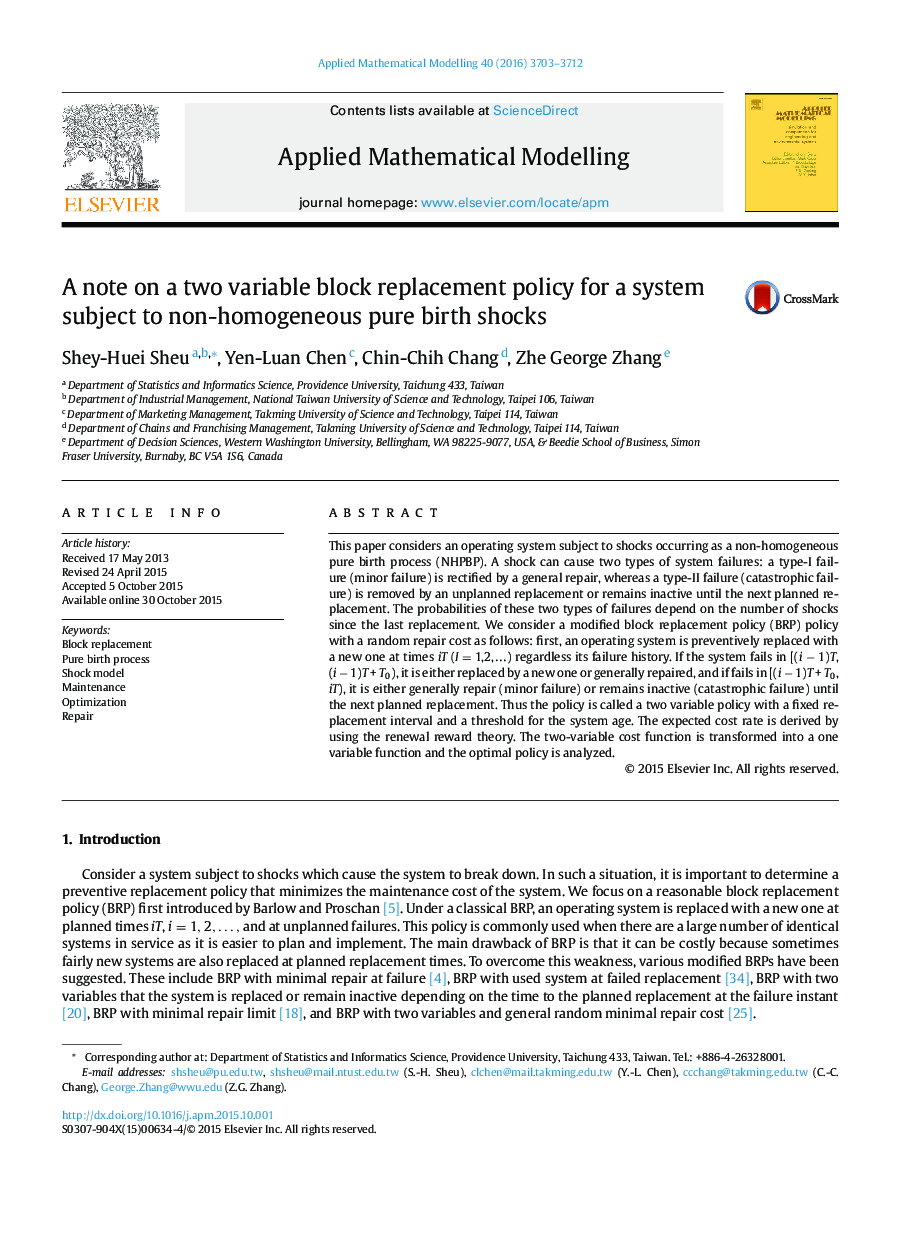| Article ID | Journal | Published Year | Pages | File Type |
|---|---|---|---|---|
| 1702902 | Applied Mathematical Modelling | 2016 | 10 Pages |
•Study an operating system subject to shocks leading to two types of system failures.•A modified block replacement policy (BRP) policy).•The expected cost rate is derived.•Derive the expected cost and profit per unit time functions.
This paper considers an operating system subject to shocks occurring as a non-homogeneous pure birth process (NHPBP). A shock can cause two types of system failures: a type-I failure (minor failure) is rectified by a general repair, whereas a type-II failure (catastrophic failure) is removed by an unplanned replacement or remains inactive until the next planned replacement. The probabilities of these two types of failures depend on the number of shocks since the last replacement. We consider a modified block replacement policy (BRP) policy with a random repair cost as follows: first, an operating system is preventively replaced with a new one at times iT (I = 1,2, …) regardless its failure history. If the system fails in [(i − 1)T, (i − 1)T + T0), it is either replaced by a new one or generally repaired, and if fails in [(i − 1)T + T0, iT), it is either generally repair (minor failure) or remains inactive (catastrophic failure) until the next planned replacement. Thus the policy is called a two variable policy with a fixed replacement interval and a threshold for the system age. The expected cost rate is derived by using the renewal reward theory. The two-variable cost function is transformed into a one variable function and the optimal policy is analyzed.
